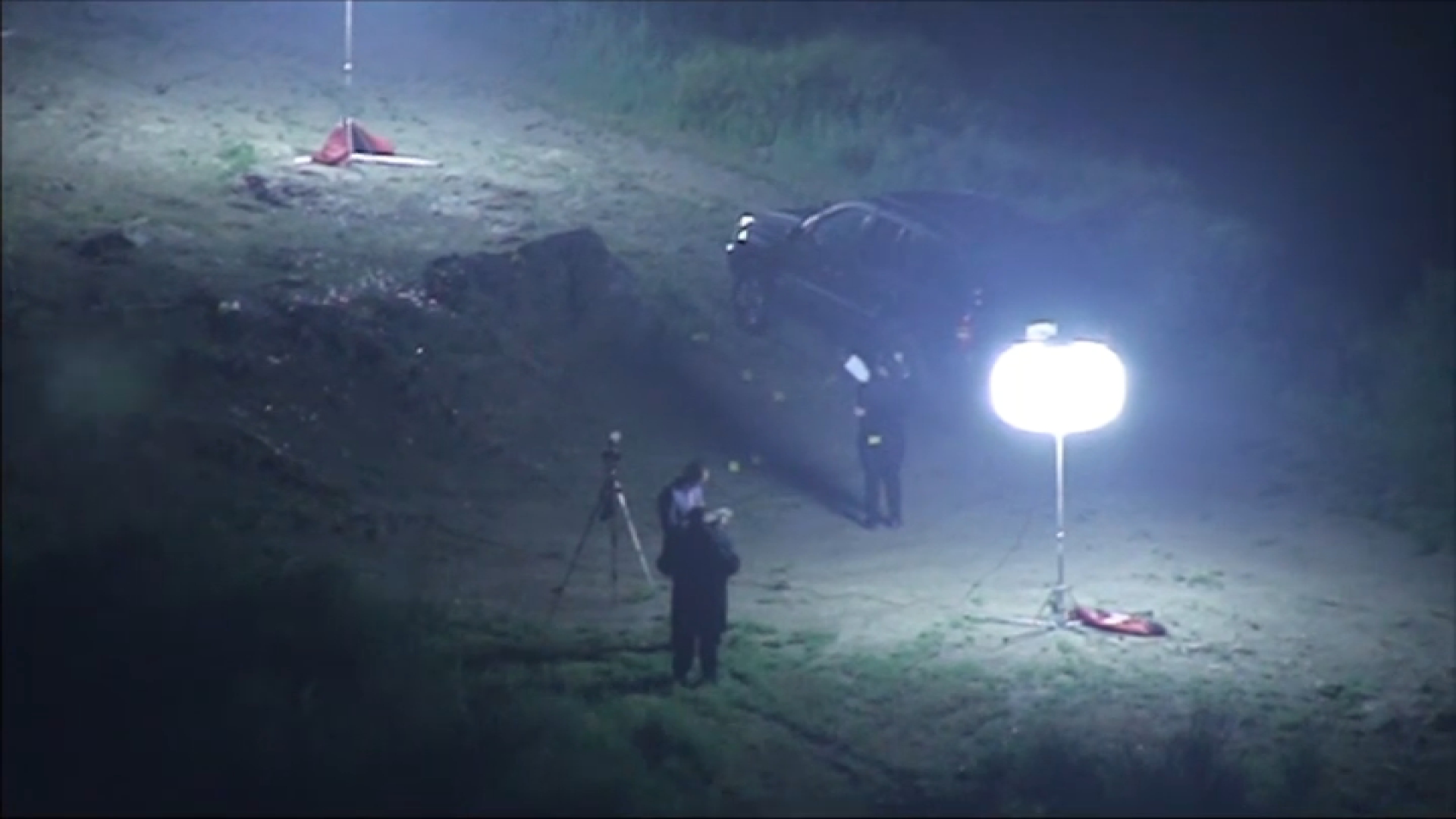There's little disagreement that the acquittal of the four officers accused in the pummeling of Rodney Glen King was the trigger that ignited the explosion of violence 20 years ago.
"Everybody just assumed they were guilty," said Mathew McDaniel, a filmmaker who made the documentary, "Birth of a Nation 4-29-92."
Full Coverage: LA Riots, 20 Years Later
But there was far more to it than one jury verdict.
"The Rodney King situation was just the straw that broke the camel's back," said YoYo Whitaker, who grew up in South LA and was then just beginning her career as a rapper and actress. "The community had been suffering so long and screaming out for help."
Whitaker and McDaniel are hardly alone in seeing the eruption of civil unrest as the consequence of a long-unfolding narrative.
It had been 27 years since a comparable breakdown of social order happened in Watts in 1965, when hopes raised by the then still-young civil rights movement crashed headlong into urban realties, and frustration boiled over. Studies were commissioned and recommendations issued, but in many ways conditions did not improve.
"Obviously, the changes recommended then did not happen," said Earl Ofari Hutchinson, founder of the Urban Policy Roundtable. Hutchinson invited NBCLA to meet with him on Martin Luther King Blvd. at the site of one of the markets that burned down 20 years ago, and remains vacant to this day.
To understand what led to 1992, Hutchinson said consideration must be given to what was happening on LA's Southside in the 1970's and 1980's. After the postwar industrial boom faded away, so, too, did the jobs in tire, auto and steel plants that once paid for houses and sent kids to college.
Local
Get Los Angeles's latest local news on crime, entertainment, weather, schools, COVID, cost of living and more. Here's your go-to source for today's LA news.
"By the time we got to the early 90's, you had several things," Hutchinson said. "You had major industry long gone. You had high unemployment, poverty. You had the crack epidemic, a major destabilizer of families. And you had a homicide rate that was just off the charts."
The then-new scourge of crack cocaine--a cheaper form of the drug, with the powder processed into small "rocks"--did more than make escape through narcotics more accessible to the despondent and hopeless. The demand for it also financed the transformation of drug-selling neighborhood youth gangs into ruthless criminal organizations, and ramped up the level of violence.
"Drugs became such an overwhelming profit center that it took on a life of its own," Hutchinson said.
The problem was the human toll.
"Gang banging was out of control at the time," said McDaniel, who watched the gang and drug ethos inform the rise of the gangsta rap movement he was chronicling.
Los Angeles Police moved to suppress crime with escalating efforts many in the community felt were repressive, including the sweeping overnight raids of what was dubbed Operation Hammer.
Of the hundreds arrested over a weekend, the following Monday many were released uncharged--free, but embittered.
"Police treated everybody the same--like a criminal," McDaniel said. "I got treated like a criminal. So I'm angry."
In African American communities, there was also widespread distrust of outspoken Police Chief Daryl Gates.
"We thought of Gates as a modern day Bull Connor," said McDaniel, alluding to an infamous symbol of 60's repression.
On top of all this, rapid demographic change was diluting African American influence in South LA, which as late as the 1960's had been one of the few LA areas where African Americans were not kept out by housing covenants and restrictions.
Latino immigrants looked to South LA for affordable housing. A wave of immigration from Korea brought many into the shop keeping business with small markets and liquor stores.
"Some people, there's anger," said Frank Huh, who had a convenience store on Crenshaw Blvd. at 67th Street. It burned down during the riots. He's now an officer of the Korean American Grocers Association, which has established an April 29 Memorial Foundation.
Huh remembers having good relationships with most of his customers, but many in the community were resentful.
"There was a sense the merchants came in, took your money, but really did not respect you," Hutchinson said.
The merchants said they felt they had to take precautions to reduce shoplifting, but customers took being followed around the store as an insult. Differences in culture and a language barrier added to misunderstandings, McDaniel said.
In March 1991, two weeks after the Rodney King video ignited controversy, another video captured the encounter between Korean-born shopkeeper Soon Ja Du and customer Latasha Harlins.
The 15-year-old had put a bottle of orange juice in her backpack before coming to the counter with cash in hand. Ju accused her of trying to steal the juice and they scuffled. Harlins turned and was walking away when Du took a gun and fired, killing her.
At trial, Du testified she acted in self-defense. The jury convicted her of voluntary manslaughter, for which she could have been sentenced to 16 years in prison. Instead, Judge Joyce Karlin put Du on probation, a decision that became only more controversial after it became known that in another LA County court, cruelty to a dog drew a harsher sentence than killing a teen.
"Her life meant nothing," was the message McDaniel took from the criminal justice system
"It shows the system does not give a damn about you," said Hutchinson, adding that many African-Americans took it to the next step: "Why should I respect the system if it does not respect me?"
Los Angeles looked next to the trial of the four officers accused of excessive force against Rodney King.
At the defense’s request, the proceedings were moved out of LA to suburban Simi Valley. Not a single African American sat on the jury. The prosecution had problems with its witnesses. The defense for all but one of the officers argued King's own erratic actions dictated the level of force required.
During testimony, the fear of King expressed by two of the officers made an impression on jurors. But the community did not see what was coming.
"We had the video; 'we got you,'" McDaniel said. "When that didn't happen, we were afraid that was a license for police to keep getting away with it."
Follow NBCLA for the latest LA news, events and entertainment: iPhone/iPad App | Facebook | Twitter | Google+ | Instagram | RSS | Text Alerts | Email Alerts



